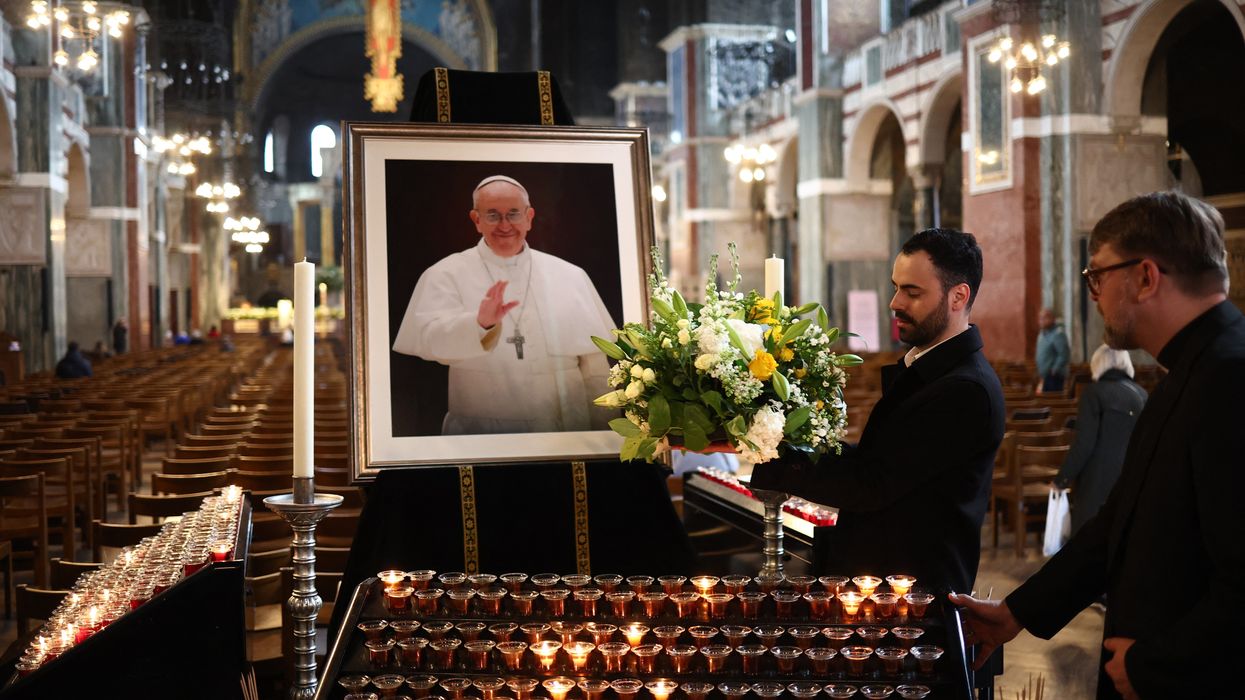THE DEATH of Pope Francis on Monday has triggered the Catholic Church’s established process for selecting a new leader.
This includes a transition period followed by the election of a new pope by the cardinals.
The process follows centuries-old traditions, with some changes made during Pope Francis’s time. Here is how it unfolds:
Sede Vacante
After a pope dies, the Church enters a period called "Sede Vacante" (Vacant See). During this time, a senior cardinal manages daily affairs until a new pope is elected.
The camerlengo, or chamberlain, is the only senior Vatican official who stays in post. In this case, it will be Irish-American Cardinal Kevin Farrell, appointed by Francis in February 2019.
One of his key duties is to confirm the pope’s death. In the past, this was done by tapping the pope’s forehead three times with a silver hammer while calling out his birth name.
The camerlengo also oversees the destruction of the “Fisherman’s Ring,” a gold signet ring used by each pope. While it was originally destroyed to prevent forgery, the act now symbolises the end of a papacy and takes place in the presence of the cardinals.
Funeral arrangements
Cardinals from around the world will meet in general congregations to plan the funeral and other events. The burial must take place between the fourth and sixth day after death. They will also organise the "novemdiales," the nine days of mourning.
While recent popes were buried in St Peter’s Basilica, Francis had requested to be buried in the Basilica of Santa Maria Maggiore in Rome.
His body will be placed in a single coffin made of wood and zinc, departing from the traditional use of three coffins made of cypress, lead, and elm.
A Vatican official said this change reflects Francis’s view of the pope’s role as “a pastor and disciple of Christ, and not of a powerful man of this world.”
Francis’s open coffin will be available for public veneration in St Peter’s Basilica. The tradition of displaying the pope’s body on a raised platform supported by cushions will not be followed.
The conclave
The general congregations also allow cardinals to discuss potential successors, or "papabili".
The date for the conclave must be set for no less than 15 and no more than 20 days after the pope’s death.
The conclave brings together cardinals under the age of 80 in a closed-door process to elect the new pope. The system dates back to the 13th century.
There are currently 135 cardinal electors, with 108 appointed by Francis. They include 53 from Europe, 20 from North America, 18 from Africa, 23 from Asia, four from Oceania, and 17 from South America.
The conclave takes place in the Sistine Chapel. The word “conclave” means “with a key”, referring to the cardinals being secluded until a decision is made.
Cardinals take an oath of secrecy and face ex-communication if broken.
Voting occurs twice in the morning and twice in the afternoon until a candidate secures a two-thirds majority.
At the end of each voting session, the ballots are burned in a stove.
Black smoke means no decision has been made, while white smoke signals a successful vote. St Peter’s bells ring alongside the white smoke.
Habemus Papam
When a new pope is elected, he is led into the “sala delle lacrime” or Room of Tears in the Sistine Chapel to reflect.
The dean of the College of Cardinals, currently Cardinal Giovanni Battista Re, asks whether he accepts the role and what name he will take. The moment he accepts, he becomes the bishop of Rome and the new pope.
The new pope changes into papal vestments — prepared in three sizes — and receives homage from each cardinal.
Soon after, he appears on the balcony of St Peter’s Basilica. The senior cardinal deacon, currently Renato Raffaele Martino, announces to the crowd in Latin: “Habemus Papam!” (We have a pope!).





